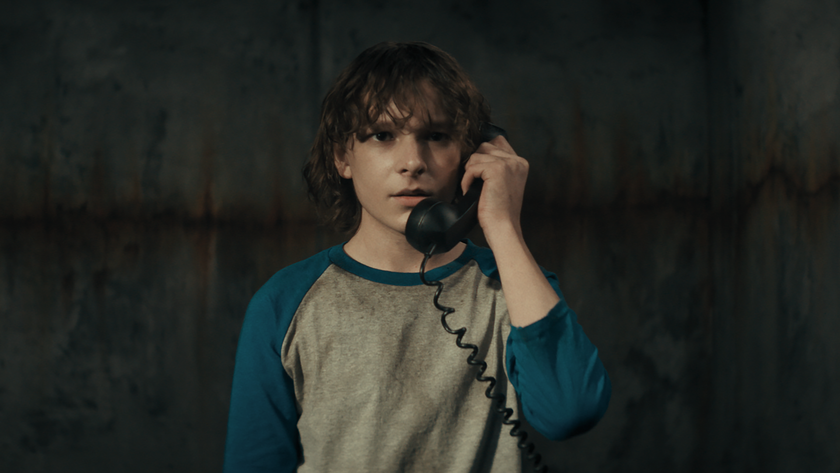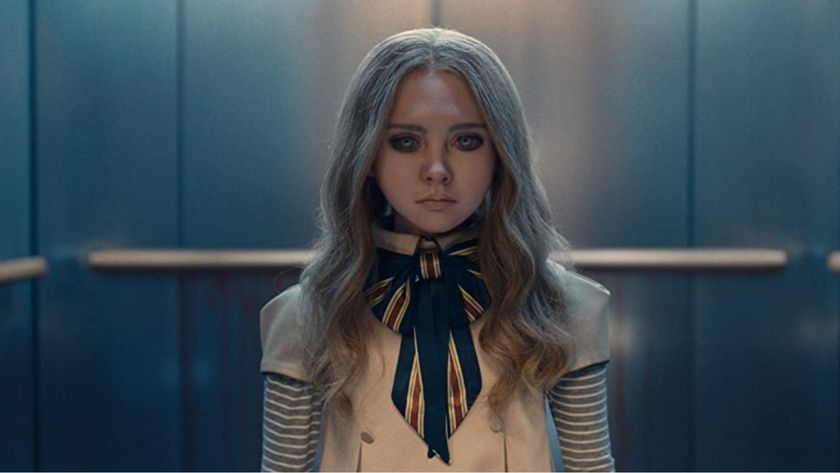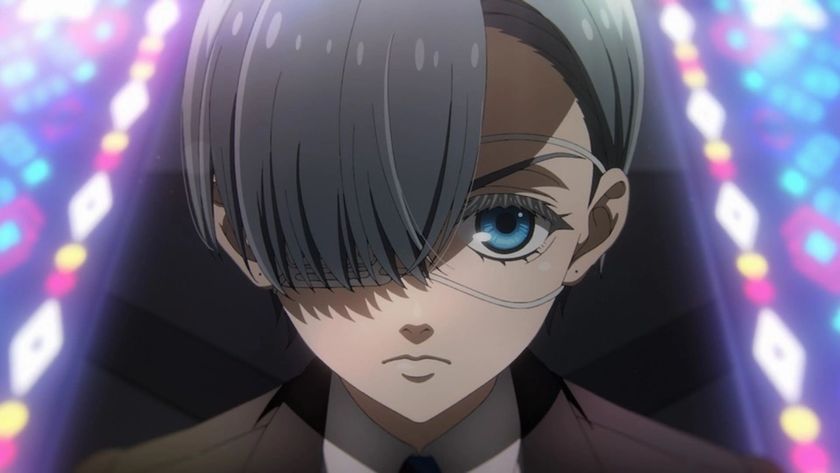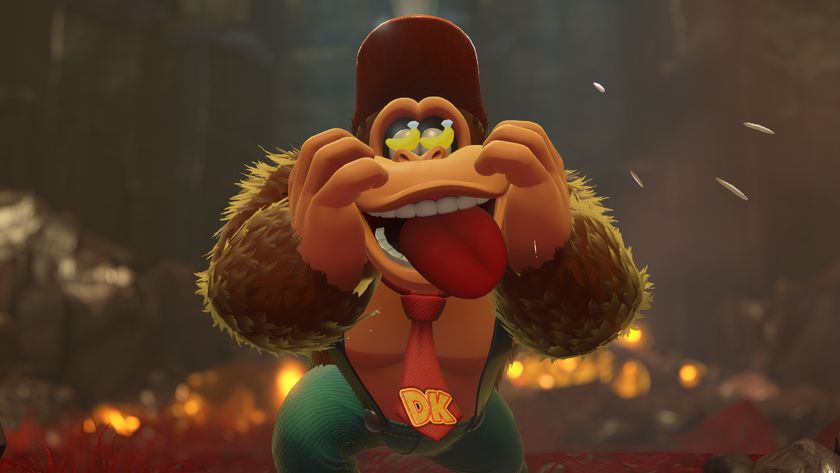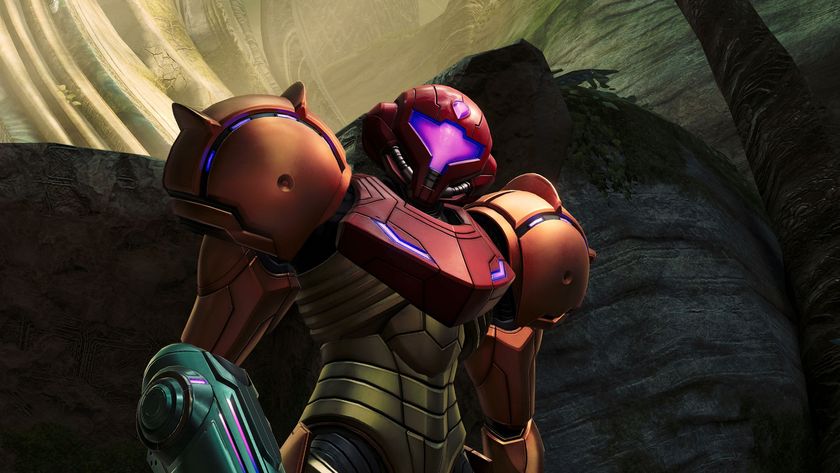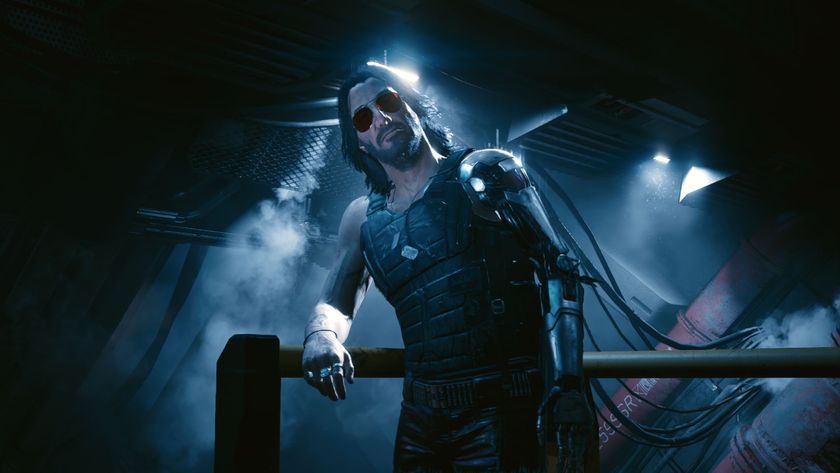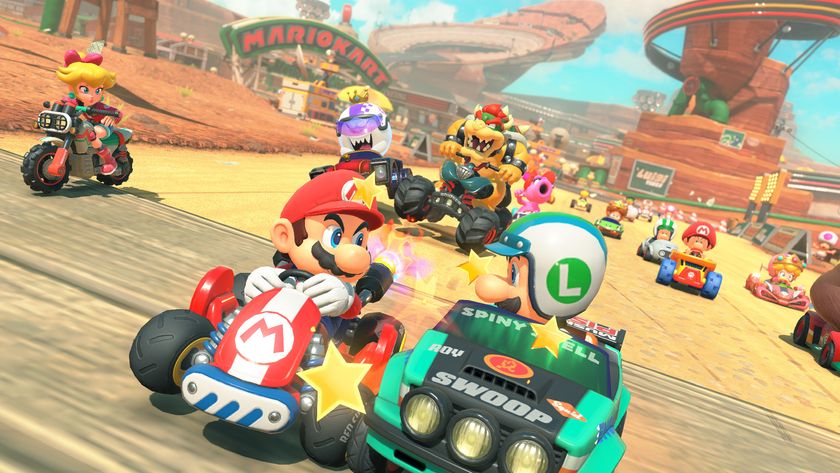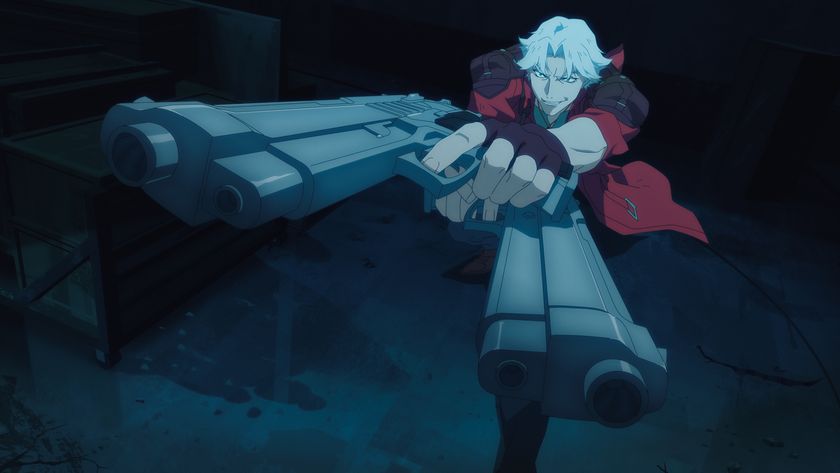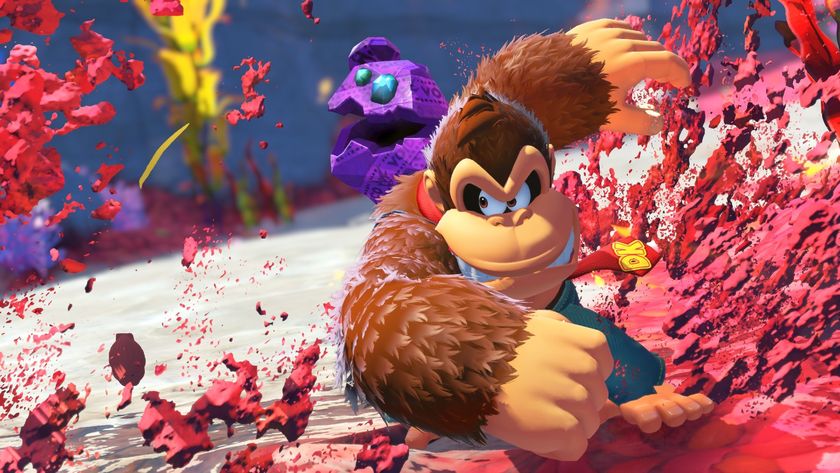Spielberg On Spielberg
The Beard gets reflective…
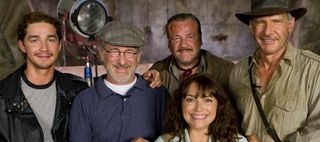
What made you finally embrace a fourth Indiana Jones movie?
It's not for money or success. It's for the good times. I've always said that I had the most fun in my life while making those three movies with George [ Lucas ] and Harrison [ Ford ]. It's a very good story. It's worth living that long to see!
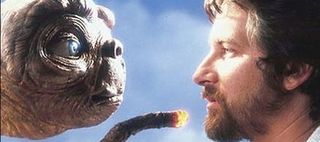
Do you think your fans would like to see a sequel to ET?
ET was a very personal little picture. My motivation for making it was pure and non-profit based - I didn't think it would be a hit because it was about kids and no films about kids under 18 were doing any business then.
I wouldn't make a sequel because it couldn't be superior to the original and I don't want to blemish a perfect picture.

It's common knowledge you disapproved of the Jaws sequels. Why didn't you make any of them?
Because making the first movie was a nightmare! There were endless problems with the shark and it was an impossible shoot. I thought my career was over because no one had ever taken a movie 100 days over schedule. It was successful, but I never wanted to go near the water again.
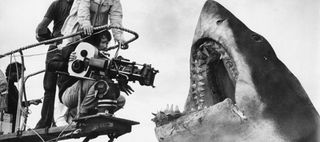
How do you feel about pretty much inventing the Summer Event Movie?
It was Universal's choice to release it in the summertime. They figured that people would be at the beach, go swimming and say, "Hey, that reminds me - let's go and see that shark movie!"
I honestly didn't know it was gonna create this, you know, lava flow each summer. Frankly, I don't really think there's a right time or a wrong time to release a movie.
Take Titanic . That was initially scheduled for summer but came out at Christmas. People don't always know what they're talking about...
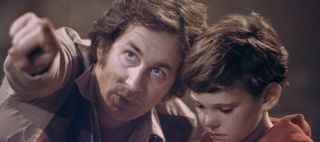
Your earlier films were universally adored but often sniffed at by critics. Has a need for plaudits shaped your later career?
When I was first starting out, I was asked, "When are your films going to start finding meaning, to start reflecting the world?" Everyone said that Jaws was a really great movie but when was I going to make something substantial?
Now I'm making movies that I think are doing good work in the world and people are saying, "When will you get back to those lighthearted pictures?" I feel like Woody Allen in Stardust Memories , when the aliens land...
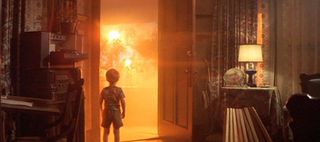
You seem to be quite obsessed with aliens. Have you any idea where that obsession comes from?
It's my hobby! Everyone has a hobby and mine is aliens. Some people go to the wood shop and make bowling-pin lamps, stuff like that. I tell stories about aliens. Well, my father was a science-fiction aficionado - he collected all the Analog magazines and the Amazing Stories from back in the '40s and '50s.
I always thought, "Gee, what if there are alien life forms out there and they come to visit us?" Like in Close Encounters Of The Third Kind and ET ... I believe in those stories in a strange, mystical way.
AI , however, is different because we all know where artificial intelligence is going. It speculates what will happen in our future when artificial intelligence becomes a tremendous benefit… Or a huge threat.
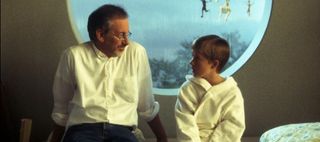
Is it fair to say that comparing AI to a film like Close Encounters again shows how your mindset has slowly changed?
I was more in sync with AI in 1994 when Stanley Kubrick asked me to direct it than I was in 1984 when he first showed it to me.
I'd now rather flash a warning than a piece of cotton candy saying, "Go into the future; go into the light." It's not that I'm cynical - just a little more realistic about the world.
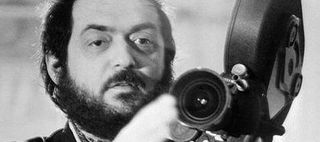
Tell us about your relationship with Kubrick...
I only met Stanley 12 times in the 18 years I knew him, all of them at his home in St Albans. But we were always on the phone, sometimes once a week, sometimes once a day. I paid for it because it was always collect calls!
I had such a phone bill from 18 years of talking to Kubrick! We talked about movies. Whenever a movie was a box-office success, he'd ask me why. I was like, "Stanley, I don't have an answer. I don't know why a film succeeds or doesn't succeed."
He was the most famous brain-drain of any man I've ever met! Most of our relationship was Stanley asking me questions, sucking my mind dry until he figured I had nothing left in the gas tank. Then he'd say, "Got to go," and hang up. Two weeks later he'd call me again and start draining…
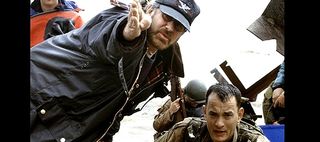
Kubrick tackled World War One and Vietnam with Paths Of Glory and Full Metal Jacket. Why did you choose World War Two with Saving Private Ryan?
World War Two is the most important event of the last 100 years. We either won it and maintained our freedom or we lost it and lost everything.
My father fought in Burma and was always saying, "Nobody ever makes a movie about my war except as an excuse to do action and adventure."
[Saving Private Ryan] is graphic because it's what really happened. It's a very, very honest recreation of the landing on 6 June 1944. I could have made Saving Private Ryan a very safe picture; I could have done all the violence off-camera and I could have had people dying in slo-mo, like in the movies we go and see every summer. But my intention was to resensitise the audience.
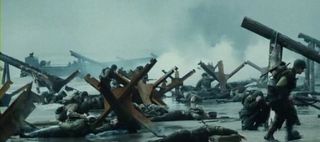
How do you even begin directing a scene like that opener? It must have been a logistical nightmare...
I wanted to tell the story like I was a Signal Corps cameraman. They basically tried to save themselves while documenting the combat that surrounded them. That's why most of the shots are low to the ground, because all the Signal Corps cameramen stayed sensibly low to avoid being killed.
I also included all the mistakes that they'd make: if a camera fell over, I used it in the movie. The camera drops and everything is suddenly sideways for a couple of seconds. That's more truthful than slickly staged combat.
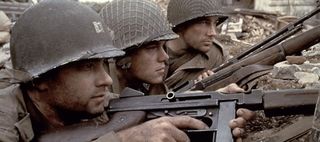
Many people feel that the US and UK ratings boards went easy on Ryan because it was a Steven Spielberg film. Unfair?
That was speculated on by trade publications but it's not something the ratings board said. They didn't say, "If it wasn't for Spielberg, we would have given this an NC-17." They saw the picture independent of any authority or any influence and they judged it to be a strong R.
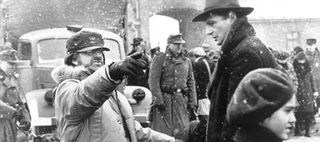
How do you switch off at night? Isn't it tough to film blood and guts all day and then lay your head on the pillow and go to sleep?
Good question. With Ryan , I learned how to compartmentalise the horror. I'd race back to the hotel, order a Guinness and go right to sleep. On Sunday, I'd play with the kids in the backyard. Schindler's List was different - there were nights when I totally fell apart.
I had never done a serious war film. I mean, they're fighting Nazis in the Indiana Jones films but it's for our amusement, a springboard to false adventure.
Schindler's List is true to my roots: my family lost many cousins, aunts and uncles in the Holocaust. I bought the book in 1982 but I couldn't have directed it then. I had to wait 11 years to be sure that I wouldn't sugarcoat it.

But some people did criticise the ending - or the endings - for being "sugar-coated". Did that madden you?
In all great drama there's redemption. Without redemption there is no hope. And the one thing I'm never going to give up on is hope. A lot of people said at the time, "Why didn't the film end brutally for all 1,200 Schindler Juden? Why were they saved? Why put on a 'Spielbergian' happy ending?"
In fact, the story came right out of history. I could have chosen a much darker Holocaust story where nobody survives the furnaces, but I wanted some kind of redemption. That's the person I am and I can't survive without that in my life.
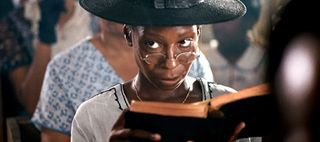
Schindler's List was your third serious drama after The Color Purple and Empire Of The Sun. It was the first to garner such profuse praise...
I think that The Color Purple is one of the best movies I've ever made. Alice Walker's book was almost impossible to adapt, so I made the movie to be much more emotional.
Of course, Walker's intellectual readership saw the film and felt I'd grossly softened her book. They were right. But I'm proud that I got it to the screen.
I've always worked fast, with enthusiasm and energy. If I don't work fast - if I concentrate too much on the details - I lose the picture.
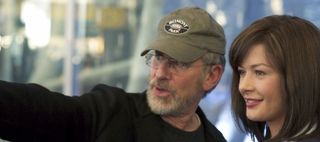
The Terminal made an interesting companion piece to Catch Me If You Can. It's light and breezy but not without its serious moments...
I wanted to do another movie that could make us laugh and cry and feel good about the world. I wanted to do something else that could make us smile. This is a time when we need to smile more and Hollywood movies are supposed to do that for people in difficult times.
I read the script and it made me forget the five screenplays I'd read before it. I thought it was an amazing idea and I had an immediate affinity for Viktor's story. I believe all of us have felt a little bit like Viktor at some time in our lives - this displaced person in search of a life.
And I don't know anyone who hasn't, at some point, spent longer sitting in an airport chair than on the airplane ride itself. Airports have become small microcosms of society: they're places to eat, shop and meet people.
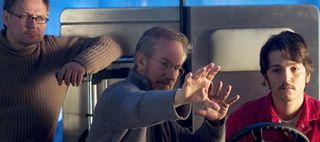
The tagline for The Terminal reads 'Life Is Waiting' - Viktor's stuck in limbo. How did you ensure the movie kept its momentum?
Viktor's stuck but everything happening around him is a blur. There's a tremendous volume of travellers moving to and fro while Viktor, by contrast, stands still. There's one shot where he's just standing there and, as the camera pulls back, he becomes invisible.
You lose him in this sea of people moving in every direction of the compass. So there is an energy to the story. Waiting can be exciting. Waiting can be entertaining.
